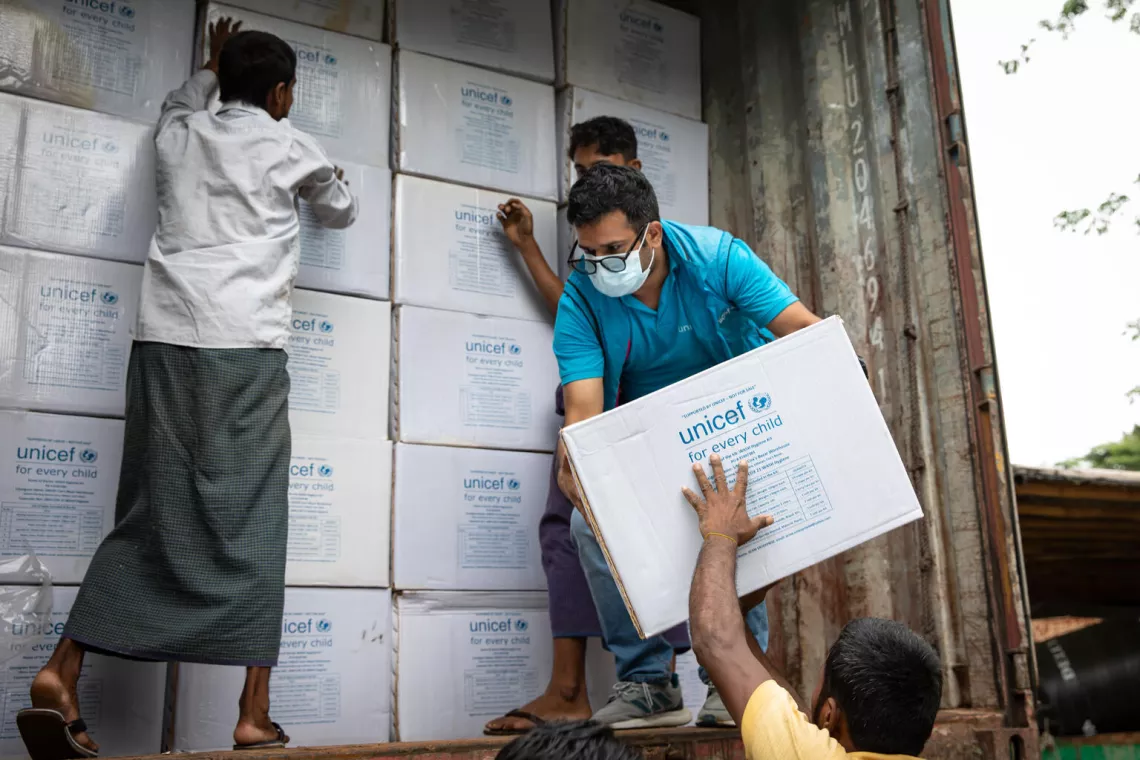Akil takes shelter in a truck for days with no water or food as floods ravage Bangladesh
UNICEF brings relief as 1.6 million children and their families are stranded in north-eastern Bangladesh

- Available in:
- বাংলা
- English
Akil and his sisters Fariha and Samia are huddled up in their father's truck. It is their only shelter as floods ravage north-eastern Bangladesh.
"We have been living out of the truck for the last three days," says Akil.
Furious floodwaters, fueled by intense rains, swept away their home in Companiganj, Sylhet, along with all their belongings. They were hoping to seek shelter at their school, which has been transformed into an overcrowded makeshift shelter. But there was no space for them. The panic-stricken siblings and their parents fled further on, but could not bring along any water, food or clothes.
With all the shops closed, they survived for two days without any food and water, their fear growing as their thirst and hunger became harder to bear. When they finally managed to find a small shop that was open, a small bottle of water costs 100 Taka (US$1.10), a price too high to pay to quench the thirst of a family of five.
Relief for children in desperate need
Even in the midst of fear and despair, Akil and his sisters find comfort in knowing that at least they have the truck as a roof over their head. But they worry about their relatives and neighbours who have nothing. Their communication with other villagers has been cut, and this intensifies their dread. During these times of uncertainty, emergency assistance provides critical relief. They have now received some supplies of food and water. But that is not enough to sustain the entire family for long.

UNICEF has already dispatched 400,000 water purification tablets that can support 80,000 households with clean water for a week. UNICEF is working to further support the Government of Bangladesh’s emergency response with millions of water purification tablets, more than 10,000 water containers known as jerry cans, and thousands of hygiene kits for women and adolescent girls. UNICEF is also procuring emergency medicine supplies for district health facilities.
In Sylhet division, 90 per cent of health facilities have been inundated, while cases of waterborne diseases continue to rise. Children are at heightened risk of drowning, already one of the major causes of child deaths in the country.

Akil holds on to hope
While Akil and his family are sheltering in the truck, over 36,000 children have taken refuge in overcrowded shelters together with their families.
Although Akil, Fariha and Samia have lost almost everything, they hold on to hope. They want to rebuild their home, reunite with their community, and return to school.
UNICEF is urgently seeking $2.5 million in funding for the emergency response as it provides life-saving supplies and services to children and families.




